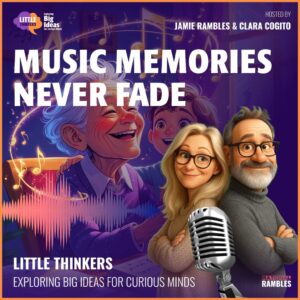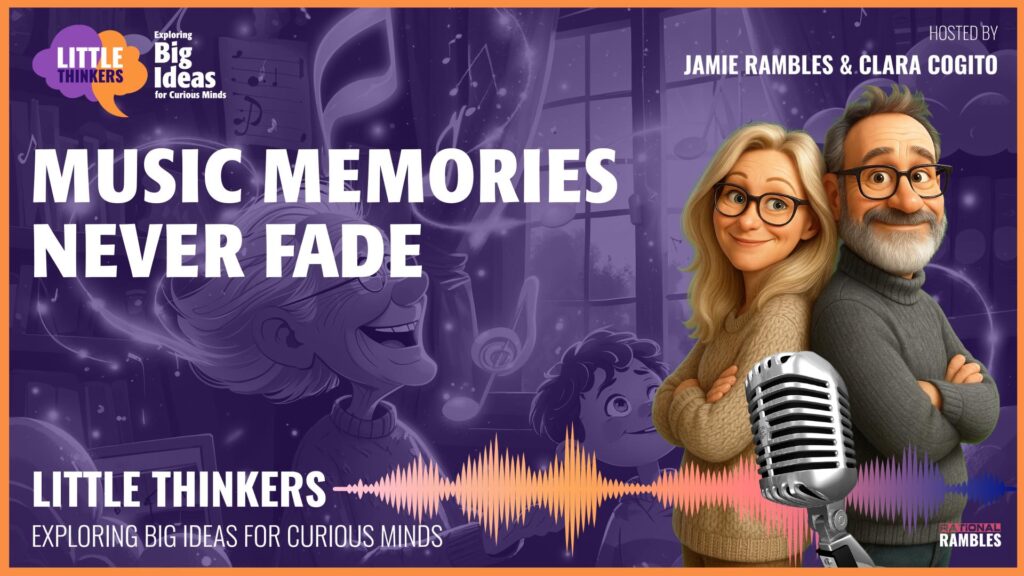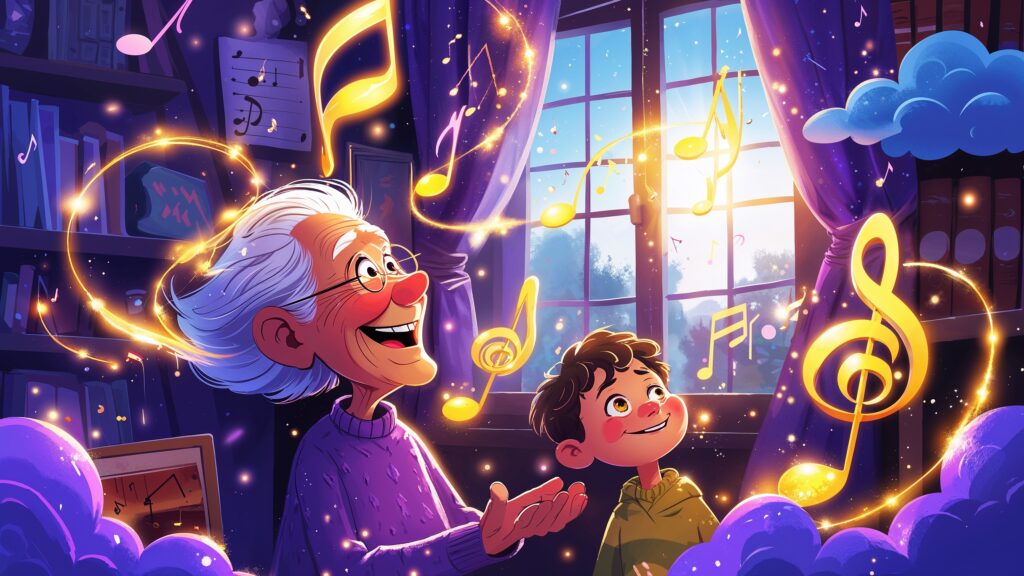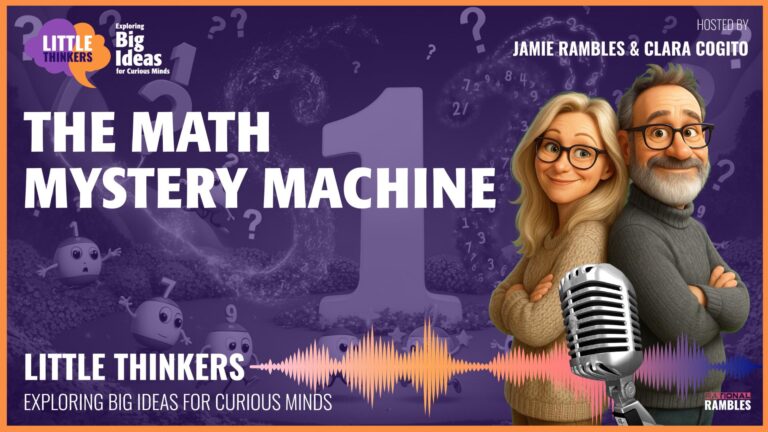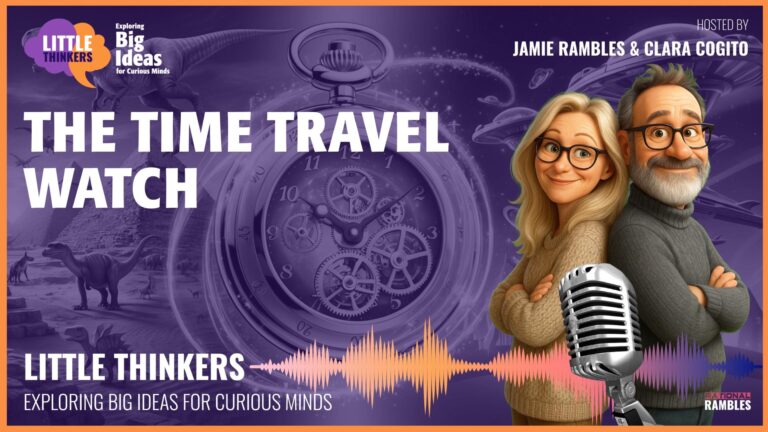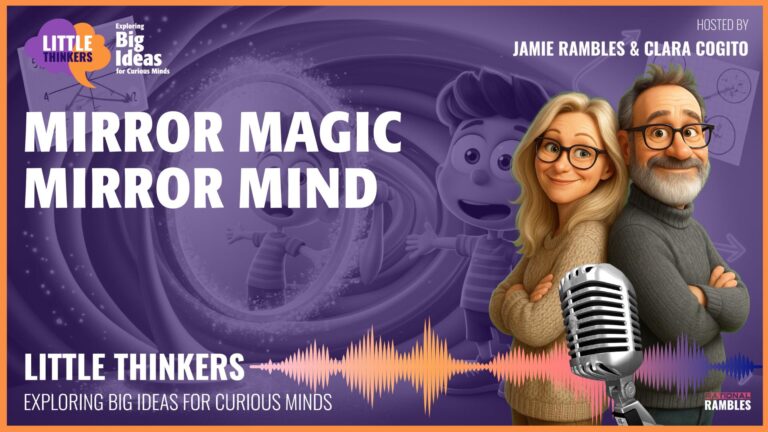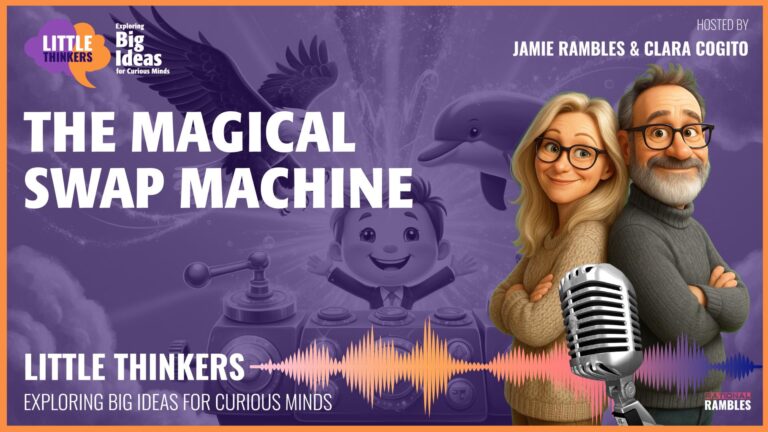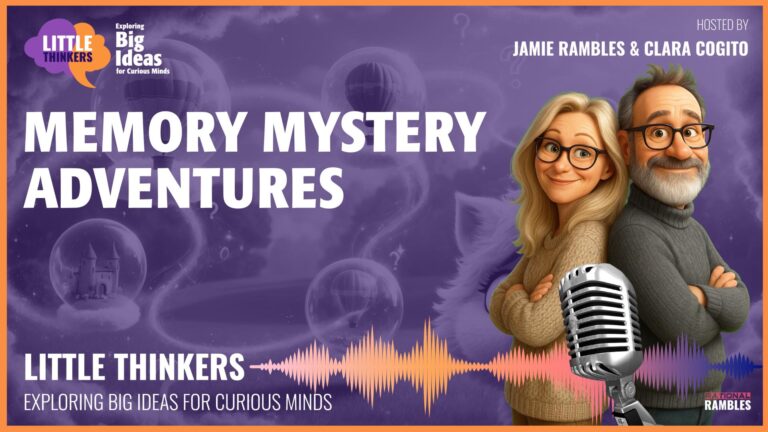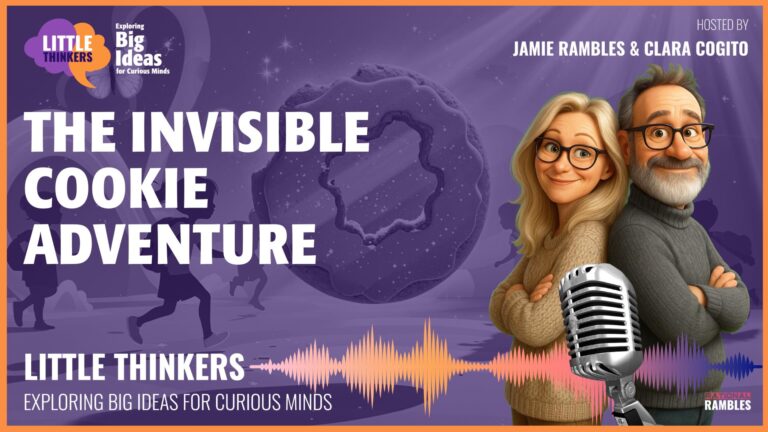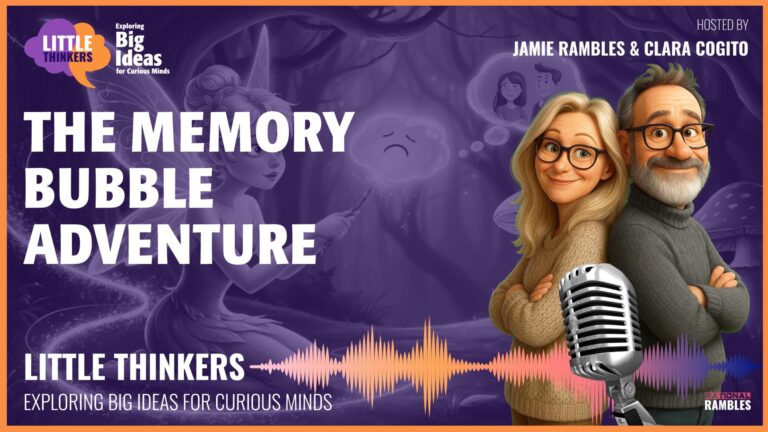The Magical Music in Our Brains: Why Songs Stay Forever!
Why Can We Remember Songs From Long Ago?
Have you ever heard an old song and suddenly remembered ALL the words? Maybe it was a song you hadn’t heard since you were tiny! Your mouth starts singing before your brain even realizes what’s happening! Isn’t that AMAZING?
Even more incredible is that people whose memories aren’t working well can often remember songs perfectly. This is one of the coolest mysteries about our fantastic brains!
What Happens When Memories Get Foggy?
Some older people have something called dementia (that means parts of their memory get very foggy). They might forget what they ate for breakfast or sometimes even who their own children are. That can be really tricky and a bit sad.
BUT here comes the magical part! Even when people with dementia can’t remember lots of other things, they can often still remember songs from when they were young!
Brain-Popping Fact!
People who can barely speak anymore sometimes start singing perfectly when they hear a song from their childhood! It’s like the music unlocks a special door in their memory! WOW!
Brain Neighborhoods: Where Memories Live
Your brain isn’t just one big memory space. It’s more like a city with different neighborhoods! Each neighborhood takes care of different kinds of memories.
- One neighborhood remembers facts about your life (like who your family is)
- Another neighborhood remembers how to ride a bike or tie your shoes
- A special neighborhood keeps all your music memories!
When someone has dementia, some neighborhoods get foggy and mixed up. But guess what? The music neighborhood often stays clear and sunny! It’s like it has special protection!
Try This Memory Experiment!
Think about these two things: 1) Your regular school schedule, and 2) Your favorite song. Which one is easier to remember completely? For most people, remembering every word of a song is much easier than remembering exactly what they do each hour at school!
Why Are Music Memories Super Strong?
Music memories are stored in special parts of your brain that control movement and feelings too! That’s why we often want to dance or feel happy when we hear music we love!
These movement and feeling parts of our brain are super tough – they’re like the strongest superheroes in your brain team! They keep working for a very long time, even when other parts get tired.
Brain Treasure Fact!
Scientists have seen that when people with memory troubles hear their favorite music, parts of their brain light up on special brain-scanning machines! It’s like the music turns on lights in rooms that were dark before! KAPOW!
Why Does Our Brain Love Music So Much?
Scientists think music memories are super strong because music has been important to humans forever and ever! Even before people had words or stories, we had rhythm and singing!
Think about it:
- Babies love lullabies even before they understand words
- Long ago, drums were used to send messages between villages
- Every culture in the world has some kind of music
Music might be even more ancient and important to our brains than words! That’s why our brains give music memories extra-special treatment!
Songs Are Like Memory Super-Glue!
Here’s something incredible: songs combine SO MANY brain activities at once!
When you hear a song, your brain works on:
- The melody (that’s the tune you can hum)
- The rhythm (that’s the beat you can clap)
- The words (the lyrics you sing)
- The feelings the song gives you
- Memories of when you’ve heard it before
That’s a LOT for your brain to work on all at once! It’s like instead of just writing something down with a regular pencil, your brain is using a sparkly multi-colored super pencil that writes deeper memory marks!
Think About This!
Have you ever tried to memorize a poem for school? It can be hard! But if that poem was turned into a song with a catchy tune, you’d probably learn it much faster! That’s why many of us learned our ABCs as a song!
Using Music To Help People Remember
Because music memories are so strong, some doctors and families are creating special songs about important things people with memory troubles need to remember!
Imagine singing: “This is your granddaughter Kate, she brings you cookies on a plate” to help a grandparent remember their grandchild. Or songs about taking medicine, or where the bathroom is in their new home.
Music therapy (that means using music to help people feel better) is helping people with memory troubles connect with their families again! It’s like music becomes a special bridge to reach people when other bridges have fallen down!
The Music Alarm Clock for Sleeping Brain Cells
Here’s something extra amazing – sometimes when people with dementia sing, they seem more “awake” or “present” for a while even after the music stops!
It’s like the music is a friendly alarm clock for sleeping brain cells! The music wakes up parts of the brain that were napping! When someone who usually seems confused suddenly starts singing all the words to their favorite childhood song, it can seem like magic – but it’s actually the power of our incredible brains!
Real-Life Wonder!
There was a man named Henry who barely spoke anymore because of his memory problems. But when nurses played music from when he was young, he suddenly started singing, moving, and even talking about memories from his past! His story was in a famous movie called “Alive Inside” that showed how powerful music can be!
Other Super-Strong Memories
Are there other super-strong memories like music that stay safe even when other memories get foggy? Yes!
- Smell memories: The smell of cookies baking or a special perfume can bring back strong memories
- Movement memories: Things we’ve done thousands of times, like riding a bike or tying shoes
- Emotional memories: Very happy, scary, or exciting moments often stay with us
Our brains have different kinds of memory super-powers! Memory is not just one thing, but many different systems working together – like a team of memory superheroes, each with their own special ability!
Brain Exercise: Music Memory Explorer Mission!
Want to explore the power of music in YOUR brain? Try this!
- Next time you hear a song you love, close your eyes for a moment
- Notice what pictures pop up in your mind
- Pay attention to what feelings bubble up in your body
- See what memories come dancing into your thoughts
You can also ask older relatives about songs they remember from when they were kids! You might be surprised how quickly they start singing along! When they share songs from their childhood, they’re sharing a special part of their life story with you!
Growing Your Music Memory Superpowers
Scientists think music might be like super-food for your brain! Learning to play instruments or sing might help build stronger memory muscles in our brains!
So if you learn to play the piano or guitar or sing in a choir, you might be helping your brain stay healthy for when you’re older someday. Plus, it’s fun to make music right NOW too! It’s a win-win!
Your Amazing Musical Brain!
Isn’t it wonderful that something as fun as music can also be so powerful for our brains? Music isn’t just entertainment – it’s brain exercise, memory magic, and emotional super-glue all wrapped up in one!
Your brain is full of amazing surprises and superpowers! Music is just one key that unlocks its magic. Next time you hear a familiar song and find yourself singing along to every word, remember – you’re experiencing one of your brain’s most magnificent abilities!
What songs do YOU think you’ll still remember when you’re very old? The ones you love most now might stay with you forever!


